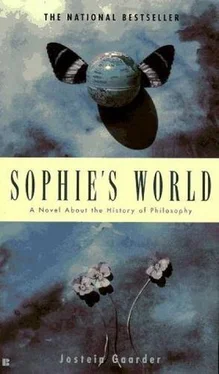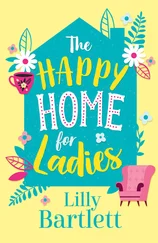Jostein Gaarder - Sophie's World - A Novel About the History of Philosophy
Здесь есть возможность читать онлайн «Jostein Gaarder - Sophie's World - A Novel About the History of Philosophy» весь текст электронной книги совершенно бесплатно (целиком полную версию без сокращений). В некоторых случаях можно слушать аудио, скачать через торрент в формате fb2 и присутствует краткое содержание. ISBN: , Издательство: BERKLEY BOOKS, NEW YORK, Жанр: Философия, на английском языке. Описание произведения, (предисловие) а так же отзывы посетителей доступны на портале библиотеки ЛибКат.
- Название:Sophie's World: A Novel About the History of Philosophy
- Автор:
- Издательство:BERKLEY BOOKS, NEW YORK
- Жанр:
- Год:неизвестен
- ISBN:0-425-15225-1
- Рейтинг книги:4 / 5. Голосов: 1
-
Избранное:Добавить в избранное
- Отзывы:
-
Ваша оценка:
- 80
- 1
- 2
- 3
- 4
- 5
Sophie's World: A Novel About the History of Philosophy: краткое содержание, описание и аннотация
Предлагаем к чтению аннотацию, описание, краткое содержание или предисловие (зависит от того, что написал сам автор книги «Sophie's World: A Novel About the History of Philosophy»). Если вы не нашли необходимую информацию о книге — напишите в комментариях, мы постараемся отыскать её.
Sophie's World: A Novel About the History of Philosophy — читать онлайн бесплатно полную книгу (весь текст) целиком
Ниже представлен текст книги, разбитый по страницам. Система сохранения места последней прочитанной страницы, позволяет с удобством читать онлайн бесплатно книгу «Sophie's World: A Novel About the History of Philosophy», без необходимости каждый раз заново искать на чём Вы остановились. Поставьте закладку, и сможете в любой момент перейти на страницу, на которой закончили чтение.
Интервал:
Закладка:
“The major’s cabin?” Sophie stared at her mother.
“The little woodland cabin is called the major’s cabin because some years ago an army major lived there for a time. He was rather eccentric, a little crazy, I think. But never mind that. Since then the cabin has been unoccupied.”
“But it isn’t! There’s a philosopher living there now.”
“Oh stop, don’t start fantasizing again!”
Sophie stayed in her room, thinking about what had happened. Her head felt like a roaring circus full of lumbering elephants, silly clowns, daring trapeze flyers, and trained monkeys. But one image recurred unceasingly— a small rowboat with one oar drifting in a lake deep in the woods—and someone needing the boat to get home.
She felt sure that the philosophy teacher didn’t wish her any harm, and would certainly forgive her if he knew she had been to his cabin. But she had broken an agreement. That was all the thanks he got for taking on her philosophic education. How could she make up for it? Sophie took out her pink notepaper and began to write:
Dear Philosopher, It was me who was in your cabin early Sunday morning. I wanted so much to meet you and discuss some of the philosophic problems. For the moment I am a Plato fan, but I am not so sure he was right about ideas or pattern pictures existing in another reality. Of course they exist in our souls, but I think—for the moment anyway— that this is a different thing. I have to admit too that I am not altogether convinced of the immortality of the soul. Personally, I have no recollections from my former lives. If you could convince me that my deceased grandmother’s soul is happy in the world of ideas, I would be most grateful.
Actually, it was not for philosophic reasons that I started to write this letter (which I shall put in a pink envelope with a lump of sugar). I just wanted to say I was sorry for being disobedient. I tried to pull the boat completely up on shore but I was obviously not strong enough. Or perhaps a big wave dragged the boat out again.
I hope you managed to get home without getting your feet wet. If not, it might comfort you to know that I got soaked and will probably have a terrible cold. But that’ll be my own fault.
I didn’t touch anything in the cabin, but I am sorry to say that I couldn’t resist the temptation to take the envelope that was on the table. It wasn’t because I wanted to steal anything, but as my name was on it, I thought in my confusion that it belonged to me. I am really and truly sorry, and I promise never to disappoint you again.
P.S. I will think all the new questions through very carefully, starting now.
P.P.S. Is the mirror with the brass frame above the white chest of drawers an ordinary mirror or a magic mirror? I’m only asking because I am not used to seeing my own reflection wink with both eyes.
With regards from your sincerely interested pupil, SOPHIE
Sophie read the letter through twice before she put it in the envelope. She thought it was less formal than the previous letter she had written. Before she went downstairs to the kitchen to get a lump of sugar she looked at the note with the day’s questions:
“What came first—the chicken or the “idea” chicken?
This question was just as tricky as the old riddle of the chicken and the egg. There would be no chicken without the egg, and no egg without the chicken. Was it really just as complicated to figure out whether the chicken or the “idea” chicken came first? Sophie understood what Plato meant. He meant that the “idea” chicken had existed in the world of ideas long before chickens existed in the sensory world. According to Plato, the soul had “seen” the “idea” chicken before it took up residence in a body. But wasn’t this just where Sophie thought Plato must be mistaken? How could a person who had never seen a live chicken or a picture of a chicken ever have any “idea” of a chicken? Which brought her to the next question:
Are we born with innate “ideas”? Most unlikely, thought Sophie. She could hardly imagine a newborn baby being especially well equipped with ideas. One could obviously never be sure, because the fact that the baby had no language did not necessarily mean that it had no ideas in its head. But surely we have to see things in the world before we can know anything about them.
“What is the difference between a plant, an animal, and a human?” Sophie could immediately see very clear differences.
For instance, she did not think a plant had a very complicated emotional life. Who had ever heard of a bluebell with a broken heart? A plant grows, takes nourishment, and produces seeds so that it can reproduce itself. That’s about all one could say about plants. Sophie concluded that everything that applied to plants also applied to animals and humans. But animals had other attributes as well. They could move, for example. (When did a rose ever run a marathon?) It was a bit harder to point to any differences between animals and humans. Humans could think, but couldn’t animals do so as well? Sophie was convinced that her cat Sherekan could think. At least, it could be very calculating. But could it reflect on philosophical questions? Could a cat speculate about the difference between a plant, an animal, and a human? Hardly! A cat could probably be either contented or unhappy, but did it ever ask itself if there was a God or whether it had an immortal soul? Sophie thought that was extremely doubtful. But the same problem was raised here as with the baby and the innate ideas. It was just as difficult to talk to a cat about such questions as it would be to discuss them with a baby.
“Why does it rain?” Sophie shrugged her shoulders. It probably rains because seawater evaporates and the clouds condense into raindrops. Hadn’t she learnt that in the third grade? Of course, one could always say that it rains so that plants and animals can grow. But was that true? Had a shower any actual purpose?
The last question definitely had something to do with purpose: “What does it take to live a good life?”
The philosopher had written something about this quite early on in the course. Everybody needs food, warmth, love, and care. Such basics were the primary condition for a good life, at any rate. Then he had pointed out that people also needed to find answers to certain philosophical questions. It was probably also quite important to have a job you liked. If you hated traffic, for instance, you would not be very happy as a taxi driver. And if you hated doing homework it would probably be a bad idea to become a teacher. Sophie loved animals and wanted to be a vet. But in any case she didn’t think it was necessary to win a million in the lottery to live a good life.
Quite the opposite, more likely. There was a saying:
The devil finds work for idle hands.
Sophie stayed in her room until her mother called her down to a big midday meal. She had prepared sirloin steak and baked potatoes. There were cloudberries and cream for dessert.
They talked about all kinds of things. Sophie’s mother asked her how she wanted to celebrate her fifteenth birthday. It was only a few weeks away.
Sophie shrugged.
“Aren’t you going to invite anyone? I mean, don’t you want to have a party?”
“Maybe.”
“We could ask Martha and Anne Marie ... and Helen. And Joanna, of course. And Jeremy, perhaps. But that’s for you to decide. I remember my own fifteenth birthday so clearly, you know. It doesn’t seem all that long ago. I felt I was already quite grown up. Isn’t it odd, Sophie! I don’t feel I have changed at all since then.”
“You haven’t. Nothing changes. You have just developed, gotten older...”
“Mm ... that was a very grownup thing to say. I just think it’s all happened so very quickly.”
Читать дальшеИнтервал:
Закладка:
Похожие книги на «Sophie's World: A Novel About the History of Philosophy»
Представляем Вашему вниманию похожие книги на «Sophie's World: A Novel About the History of Philosophy» списком для выбора. Мы отобрали схожую по названию и смыслу литературу в надежде предоставить читателям больше вариантов отыскать новые, интересные, ещё непрочитанные произведения.
Обсуждение, отзывы о книге «Sophie's World: A Novel About the History of Philosophy» и просто собственные мнения читателей. Оставьте ваши комментарии, напишите, что Вы думаете о произведении, его смысле или главных героях. Укажите что конкретно понравилось, а что нет, и почему Вы так считаете.












